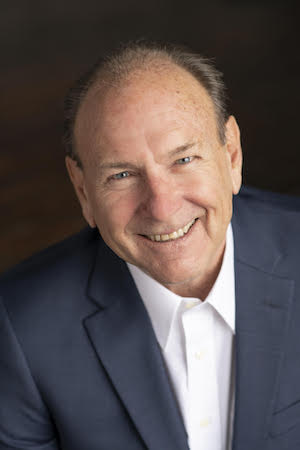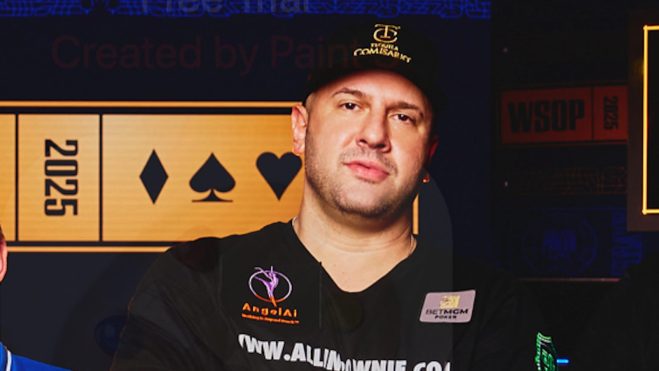Old School Meets New: A Conversation Between Two Friends About Data
Two perspectives showing how the topic has evolved over the years
5 min

“Data! Data! Data!” he cried impatiently. “I can’t make bricks without clay.”
— Sherlock Holmes, through the pen of Arthur Conan Doyle
Having spoken together at ICE London in 2023 on the topic of data, innovator Lisa Beuschau and I now bring a version of our old school (me) meets new school (Lisa) discussion to the printed page.

Richard: One of my earliest experiences regarding utilizing data in gaming took place in the late 1970s. I was managing a small casino, and we were working to develop ways to identify quality slot players. Now, one needed to insert coins into a slot to play a machine (hence the name “slot machine”). Moreover, these coins could be purchased in the casino and came in rolls held together by paper wrappers and offered in various denominations.
Our data collection technique was to walk through the slot machine areas of the casino and look for the discarded paper wrappers at a player’s feet. Based on the denomination of the machine, and the number of discarded wrappers, we would decide on granting complimentary awards. It was a simple system by today’s standards, but it worked.
Lisa: Your story clearly illustrates how much the gambling industry has developed over the past 40-50 years, expanding to online gambling and advancing data collection and analysis.
With more data than ever, highly advanced algorithms, and the technology to handle large and heterogenous data sets, we now have a playground for curious researchers. Today, it is a matter of asking the right questions in the endless data stream to transform data into knowledge. And to be creative. One example of heterogeneous data sets and an innovative approach is the VILPA study (Vigorous Intermittent Lifestyle Physical Activity) that looked at 25,000 non-exercisers. The study combined medical data with smartwatch data. It revealed that three-to-four one-minute spurts, such as running to catch a bus, taking the stairs, etc., are associated with up to 49% less risk of cardiovascular disease and 40% less risk of dying of cancer or other causes. Thinking outside the box and merging data might be the key to revealing knowledge on gambling and up the game in terms of safer gambling.
Richard: In the early 1980s, I was hired by the corporate office of Golden Nugget, Inc. This was a Las Vegas-based company chaired by Stephen Wynn that also had a property in Atlantic City — and the Atlantic City property was everything to the company’s success. In the hiring process, there was much interest in my analytic background, most notably that I had an undergraduate and master’s degree in economics and had spent over five years in a Ph.D. program.
At this time, Atlantic City bus programs were critical in filling mid-week demand, and the Golden Nugget of Atlantic City was serviced by over 100 buses under its control. Moreover, at the time I was doing my research, each bus rider was receiving something in the neighborhood of $25 in coin incentives, plus food discounts and other perks. In short, this was a costly program. Moreover, most of the casinos along the A.C. Boardwalk also offered bus programs, and there was a long-lasting war of each property working to out-incentive the other — all working to drive up costs.
After starting with the Golden Nugget, one of my first tasks was to fly to Atlantic City and try and provide some additional analytic insight into what the bus program looked like from a cost/benefit standpoint. After being in Atlantic City for two days, I received a call from my boss as to what the numbers seemed to be telling me. I responded that I had yet to look at the numbers. The response to my statement was a bit of annoyance. He then asked what I had been doing for the last two days, and my answer was that I had been riding buses between Philadelphia and Atlantic City. This seemed to double his annoyance, with him suggesting that he did not fly me to Atlantic City to ride buses.
After a few minutes of lecture, he settled down and asked if I had learned from this experience. My response was that I was surprised by how many people boarded the buses in shorts carrying items that would suggest the destination was not the casino but the beach, although I was confident they would stop in the casino to pick up the hard coin incentive.
On this trip, we learned that we had been looking at some reasonably dirty data.
Lisa: Things aren’t always as they seem on the surface. The equation in your bus story appears relatively simple: free bus ride + other benefits = casino customers. However, some people happily take the free offering to go to the beach instead.
Another example is Italy, where a ban against gambling ads was implemented to protect gamblers. The rationale was: ad ban = better player protection. However, this led to losing about one-fifth of gamblers to the unregulated market, where gamblers are not protected, as the ad exposure of the unregulated market became predominant. Now, the Netherlands is working on an advertisement ban to take effect this summer.
So, what can we do if things aren’t as they seem on the surface? Two things come to mind that are particularly important. Firstly, the quality of data and the conditions under which data are collected must be considered carefully. We should, secondly, rid ourselves of assumptions and look toward evidence-based knowledge as navigation marks instead. This is where research comes into the picture.
Richard: In the early days of iPoker in New Jersey, I attended a gaming conference in Atlantic City to learn more about this product. The conference was typical in that the speakers represented many operators and support companies that were delivering or wanted to become involved in the poker product offering. I heard from all of these folks that iPoker was the best product on the planet since sliced bread, and while there was an occasional hiccup here and there, everything was pretty smooth.
There was then a curious thing at this conference: a panel of actual iPoker players from the market. With this group, the narrative changed dramatically. No longer was the discussion about how well everything was working, but rather it was a series of complaints that all was not well in paradise, citing several examples.
Since then, I have discovered that gaming conferences seldom invite actual players. I think I know why.
Lisa: Your story holds a strong message. We have to remember to be inclusive of all parties involved. This is generally different. The gambling industry is pretty compartmentalized. Even though lived experience has become a strong voice in the U.K., the involvement of customers is usually minimal. And the same goes for researchers. There needs to be more dialogue between the industry and academia. We are missing out on a huge potential to gain insight and transform data into valuable knowledge. And it doesn’t stop here — the dialogue between other stakeholders, i.e., operators and regulators, is sparse.
Let’s revisit our panel at ICE London 2023 and the story about the six blind men and the elephant, as the story beautifully illustrates the issue. The six blind men try to describe the elephant, but as each grabs a different part, they describe another animal.
We are all biased by our position and perspective in the gambling ecosystem. That is why we need more dialogue between the different parties in the gambling industry to broaden each other’s views.
Richard: Well, thanks for the pleasant discussion, my friend, and as always, I learned a great deal from our visit. We will have to do this again.
Lisa: It’s always a pleasure. Thank you for telling your inspiring stories. I learn a lot every time, so let’s definitely do this again.
—
Lisa Beuschau lives in Denmark and has a strong track record in innovation and entrepreneurship. As one of the innovators behind Mindway AI, Lisa has brought award-winning technology to the gambling industry. She has founded several companies, most recently LINA Research Foundation to elevate research and its applications in the gambling industry. She is also an owner of Punkt & Prikke.
Richard Schuetz entered the gaming industry in 1971 in the U.S. and has held positions as an operator, educator, and regulator. He is currently the CEO of American Bettors’ Voice.






